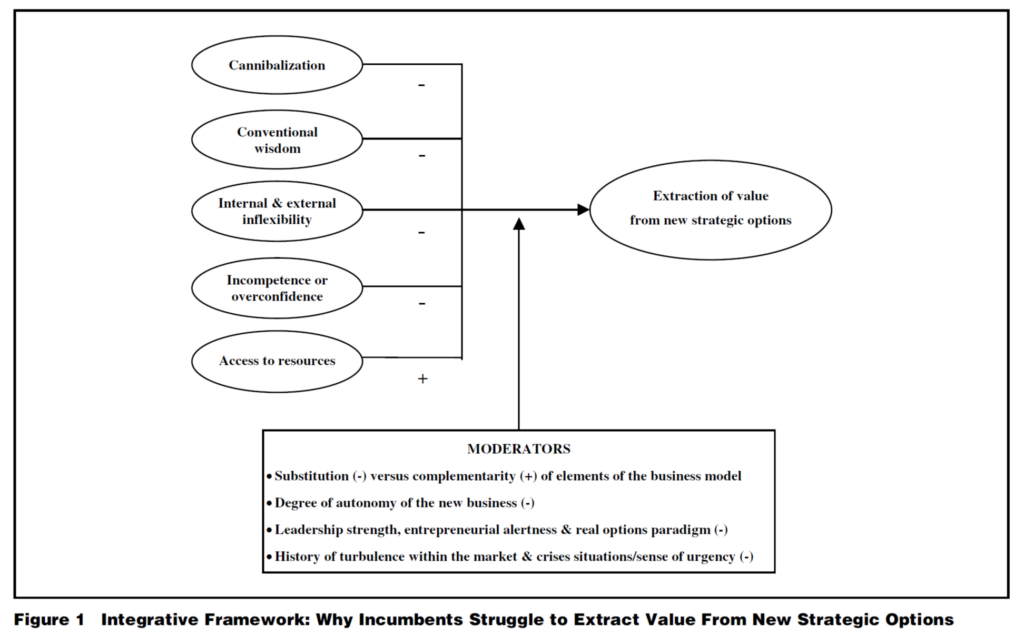
By Mattijs Willenborg – Copyright of Elsevier
A case of the European Airline Industry
Industry transformations generally stem from technological changes, however in this case study we highlight examples suggest they may also be due to the introduction of new business models. Whereas many of these models contain seemingly principles and elements, and even though new entrants engage in profitable pursuits, established firms often struggle in their attempts to extract value from them.
Which factors are causing the difficulties experienced by incumbents? And, when are problems most severe?
A review of academic literature clarifies that incumbents face difficulties associated with cannibalization, conventional wisdom, internal and external inflexibility, and incompetence or overconfidence. The negative effects of these factors are reinforced by, among other aspects, business models consisting of many complementary elements, insufficient autonomy granted to new businesses, an absence of strong leadership or entrepreneurial alertness, and a low sense of urgency.
Based on this, we developed a framework, which is illustrated with a case study of low-cost initiatives in the European airline industry, in which we compare endeavours of three incumbents (British Airways, KLM, and Lufthansa) with those of three new entrants (Ryanair, EasyJet and Virgin Express).
This paper contributes to the shifting the attention from industry changes provoked by technological breakthroughs to transformations originating from the introduction of new business models, and by indicating why incumbents fail to extract value from these models.

Click below to read the full article:
About the Author:
Bringing experience from across four continents to the table, Mattijs has a wealth of sales, change and general management as well as cross-cultural experience and expertise under his belt. With 12 years of global experience at market leading businesses & brand in B2B, technology driven industries, he knows how to get & keep market leaders leading.
He has pivoted businesses from technological to customer-focused whilst maintaining technical industry leadership. He has transformed businesses with years of negative returns and put them on a path of profitable growth. He has integrated and aligned teams of different cultures, established ownership & accountability and a winning culture and pride throughout organisations.




